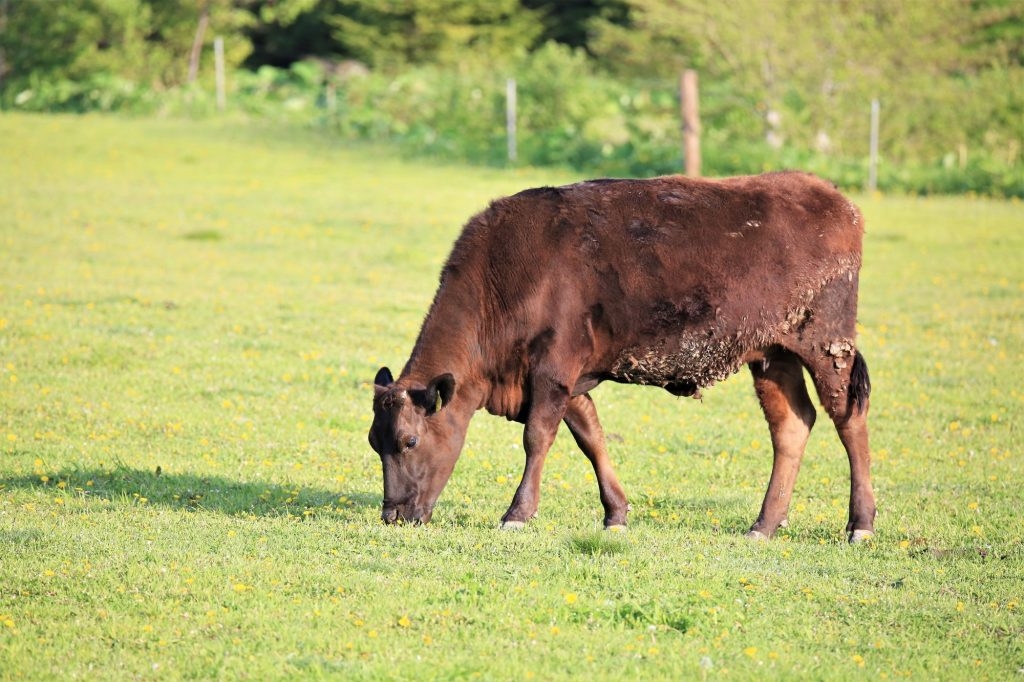The number of breeding cattle in Japan is declining. Did you know, in fact, that the fertility rate among beef cattle is poor and that the conception rate for first-time artificial insemination is declining?
This thought to be due to various factors, including an artificial insemination-related skill shortage and the timing of fertilization.
Moreover, it is believed that feed volume and nutritional balance are strongly associated with diseases affecting fertility. Hence, a key challenge is appropriately managing nutrition in line with the condition of the cattle.
Traditionally, nutritional management of cattle has been carried out through visual and manual inspection. However, being able to diagnose the nutritional condition of a cow just by looking at and handling it requires great skill and experience. In other words, success depends upon having enough highly experienced breeders.

To help with this situation, researchers in the Aikawa Laboratory in the Faculty of Advanced Engineering and Technology’s Department of Applied Electronics have developed AI-driven management tools for use in ensuring nutritionally balanced feed.
Dairy farmers already employ remote sensing technology and AI, as well as cloud system-type information and communication technology (ICT), in cattle breeding. The tools used by dairy farmers are able to evaluate the nutritional condition of a cow without needing to be in contact with cow physically. However, these tools work only dairy cattle and not beef cattle.
Researchers in the Aikawa Laboratory have therefore developed a technological system which enables evaluation and optimization of the nutritional condition of both dairy and beef cattle.
First, a method was established which enables objective evaluation of a cow’s nutritional condition without having to put anything onto its body, and the values and reproductive performance data obtained from this were analyzed by AI as study data. Then, optimal nutrition values were derived and used as “new indices” corresponding to each stage of the breeding process.
Based on these indices, researchers in the Aikawa Laboratory developed an “automated feed system” which automatically adjusts the feed volume in consideration of the nutritional condition of cattle.
By making it possible to manage cattle’s nutritional condition so that a stable reproductive rate can be maintained, the operational burden borne by Japanese dairy farmers and stock-breeders is lessened which, in turn, helps ensure the stability and safety of the food supply.
It is towards this end that the researchers in the Aikawa Laboratory are working daily to develop, and facilitate the widespread adoption of, AI-driven automated feed systems.

■ Main research content